By Rajnish Mago, MD (bio)
Exposure to blue light in the evening is believed to suppress the body’s secretion of melatonin. Because of this, it is believed to worsen sleep. So, it is thought that if blue light could be blocked by a person wearing special blue-blocking glasses, sleep could be improved. Blue-light-blocking glasses may be helpful for insomnia, restless sleep, delayed sleep phase disorder, shift work, bipolar mania/ hypomania, and so on.
A huge advantage of blue-light-blocking glasses is that they block blue light from ALL sources—computers, smartphones, TV, room lighting, and so on.
Some problems are also associated with blue-light-blocking glasses:
– Most blue-light-blocking glasses, especially the ones that don’t cost too much, don’t look that great. The person may feel embarrassed to wear them in the presence of others
– The yellowing tinge that the glasses give to everything is not a problem while using one’s computer or smartphone. But, when watching a show or movie, the altered colors may bother the user.
What criteria may help us choose?
Many different glasses can be found online, some of them quite inexpensive, that claim to be blue-light-blocking. How should we decide which ones to recommend to our patients? The main thing to note is that there are degrees to which different glasses block blue light. Two criteria to consider are:
1. Have the glasses been specifically shown to block almost all blue light (for example, 98% or even 99.9%)? For maximum effectiveness, glasses with partial blue-light-blocking added on may not enough. Glasses that block nearly all blue light would be best.
2. Do the glasses wrap around the eyes sufficiently so that a lot of light doesn’t reach the eyes from the sides?
Why we need to recommend specific products
Why can’t we just recommend that our patients wear blue-light-blocking glasses in the evenings and leave it up to the patient to find and choose a particular brand/ model? There are dozens of brands/ models available. But, we should not assume that any of them will be fine. Here’s why:
Consumer Reports, an organization that is well-respected for providing unbiased tests of consumer products, tested three blue-light-blocking glasses and found that two of the three did NOT work well:
– Gunnar Intercept gaming glasses (medium yellow), cut out only about half of the blue light.
– Spektrum Pro Blue Light Blocking Glasses (light yellow), cut only out about one-third of the blue light.
Uvex Skyper Blue Light Blocking Computer Glasses with SCT-Orange Lens (S1933X)
This specific model was used in some published studies (Janků et al., 2020; Perez Algorta et al., 2018). Also, Consumer Reports, an organization that is well-respected for providing unbiased tests of consumer products, tested three blue-light-blocking glasses and found this one did cut out almost all blue light.
These glasses can be found on Amazon at the link provided Here.
See the images below of me wearing the Uvex Skyper (front and side).
So, let’s look at my top choices for blue-light-blocking glasses.
LowBlueLights®
Why am I recommending this particular company? Because blue-light-blocking glasses from this company were used in several published clinical trials (Bigalke et al., 2021; Henriksen et al., 2020; Esaki et al., 2016). Note: Simple and Practical Medical Education and Dr. Mago have no relationship whatsoever, financial or otherwise, with this company.
Here is a screenshot of the 6 models of blue-light-blocking glasses available from LowBlueLights.com:
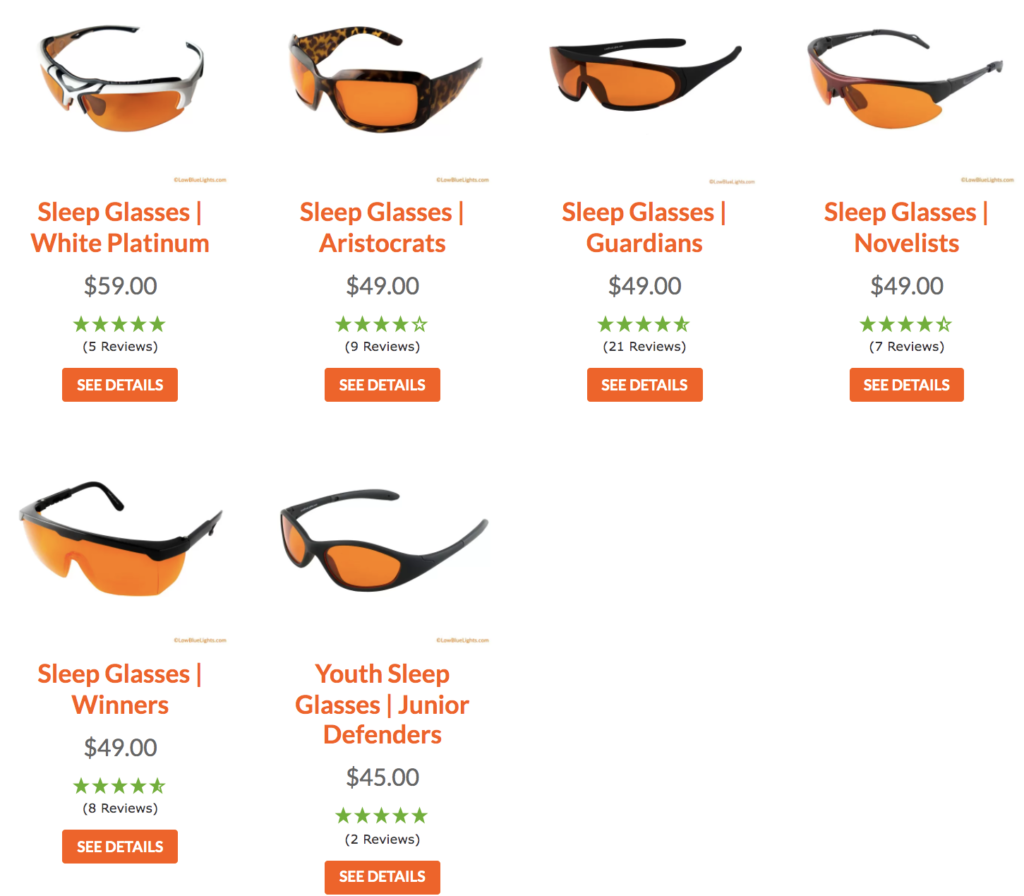
Uvex Protégé Blue Light Blocking Computer Glasses with SCT-Orange Lens (S4204X)
This is from the same manufacturer as the Uvex Skyper (above), but it looks and feels nicer. It costs only a bit more than the Uvex Skyper (about $15). Note: The Uvex Skyper completely shuts out light from all sides, while the Uvex Protégé does allow a bit of light from its lower edge.
See the images below of me wearing the Uvex Protégé (front and side):
Disclosure: The links above for the Uvex glasses are Amazon affiliate links. Buying products from Amazon.com using links on this website helps to support this website at no additional cost to the purchaser. But we still want to be fully transparent about this.
Optional to read
Other brands of blue-light-blocking glasses that were used in published studies included:
Chron-optic Inc. Quebec City, Canada. These glasses were used in a published study from Canada (van der Lely et al., 2015). My concern about this product is that the glasses don’t wrap around the eyes. A lot of light could enter from the sides.
Yamamoto No.360S UV Orange Blue light protective glasses These glasses were used by a study from Japan (Esaki et al.,2020). They are not available on Amazon.com in the USA.
Related Pages
Blue-light-blocking glasses for persons with bipolar disorder?
Blue-light-blocking glasses for delayed sleep phase disorder?
Sleep masks for better sleep
Sleep hygiene worksheets
References
Bigalke JA, Greenlund IM, Nicevski JR, Carter JR. Effect of evening blue light blocking glasses on subjective and objective sleep in healthy adults: A randomized control trial. Sleep Health. 2021 Aug;7(4):485-490. doi: 10.1016/j.sleh.2021.02.004. Epub 2021 Mar 8. PMID: 33707105.
Consumer Reports: 3 Blue Blockers Put to the Test
Esaki Y, Kitajima T, Ito Y, Koike S, Nakao Y, Tsuchiya A, Hirose M, Iwata N. Wearing blue light-blocking glasses in the evening advances circadian rhythms in the patients with delayed sleep phase disorder: An open-label trial. Chronobiol Int. 2016;33(8):1037-44. doi: 10.1080/07420528.2016.1194289. Epub 2016 Jun 20. PMID: 27322730.
Esaki Y, Takeuchi I, Tsuboi S, Fujita K, Iwata N, Kitajima T. A double-blind, randomized, placebo-controlled trial of adjunctive blue-blocking glasses for the treatment of sleep and circadian rhythm in patients with bipolar disorder. Bipolar Disord. 2020 Nov;22(7):739-748. doi: 10.1111/bdi.12912. Epub 2020 Apr 20. PMID: 32276301.
Henriksen TEG, Grønli J, Assmus J, Fasmer OB, Schoeyen H, Leskauskaite I, Bjorke-Bertheussen J, Ytrehus K, Lund A. Blue-blocking glasses as additive treatment for mania: Effects on actigraphy-derived sleep parameters. J Sleep Res. 2020 Oct;29(5):e12984. doi: 10.1111/jsr.12984. Epub 2020 Jan 21. PMID: 31967375.
Janků K, Šmotek M, Fárková E, Kopřivová J. Block the light and sleep well: Evening blue light filtration as a part of cognitive behavioral therapy for insomnia. Chronobiol Int. 2020 Feb;37(2):248-259. doi: 10.1080/07420528.2019.1692859. Epub 2019 Nov 22. PMID: 31752544.
Perez Algorta G, Van Meter A, Dubicka B, Jones S, Youngstrom E, Lobban F. Blue blocking glasses worn at night in first year higher education students with sleep complaints: a feasibility study. Pilot Feasibility Stud. 2018 Nov 1;4:166. doi: 10.1186/s40814-018-0360-y. PMID: 30410784; PMCID: PMC6211454.
van der Lely S, Frey S, Garbazza C, Wirz-Justice A, Jenni OG, Steiner R, Wolf S, Cajochen C, Bromundt V, Schmidt C. Blue blocker glasses as a countermeasure for alerting effects of evening light-emitting diode screen exposure in male teenagers. J Adolesc Health. 2015 Jan;56(1):113-9. doi: 10.1016/j.jadohealth.2014.08.002. Epub 2014 Oct 3. PMID: 25287985.
Copyright © 2018 to 2025, Simple and Practical Medical Education, LLC. All rights reserved. The content on this website may not be reproduced in any form without express written permission.
Disclaimer: The material on this website is provided as general education for medical professionals. It is not intended for patients or other laypersons, nor is it a substitute for medical advice, diagnosis, or treatment. Patients must always consult a qualified healthcare professional regarding their diagnosis and treatment. Healthcare professionals should always check this website for the most up-to-date information.
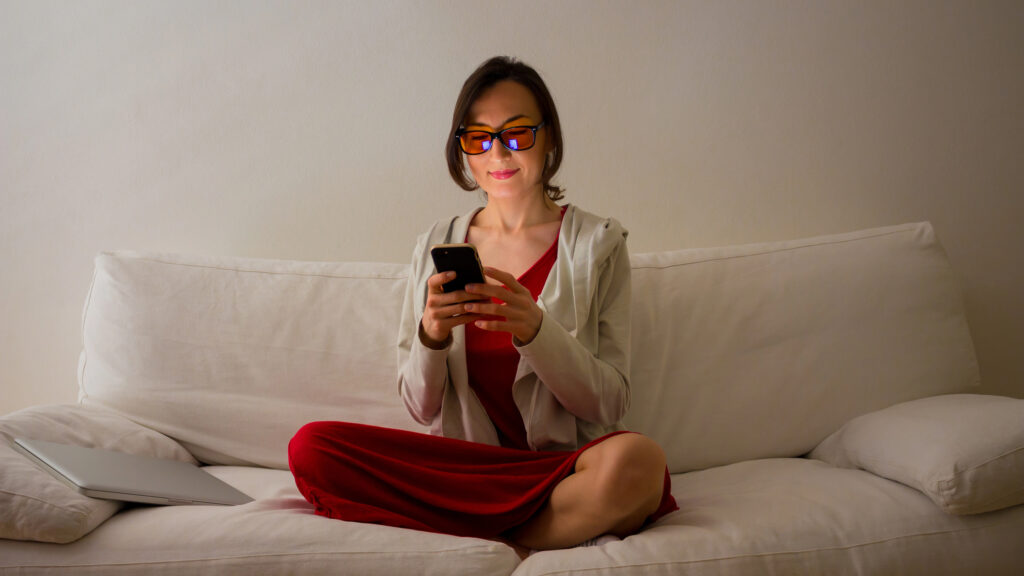
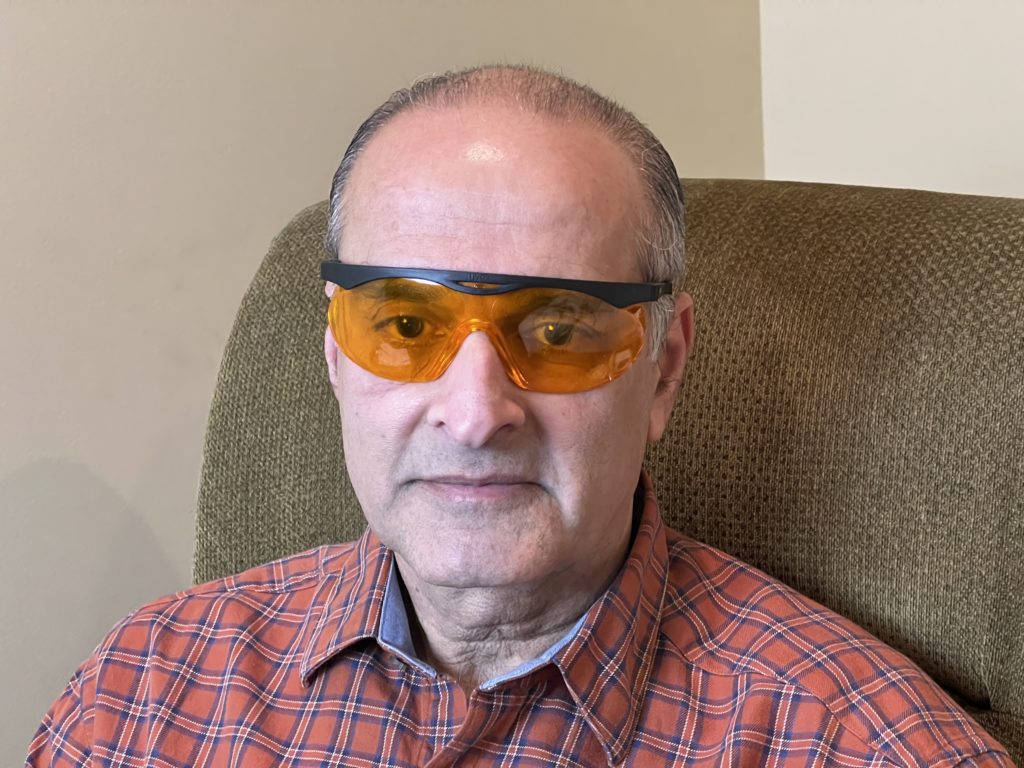
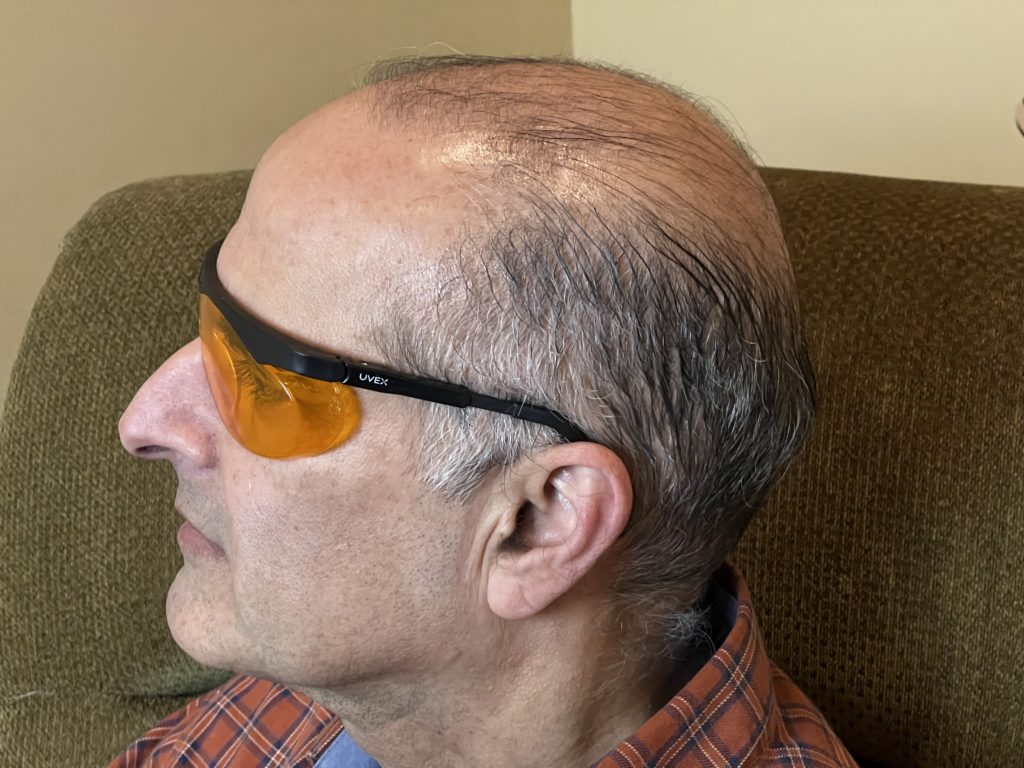
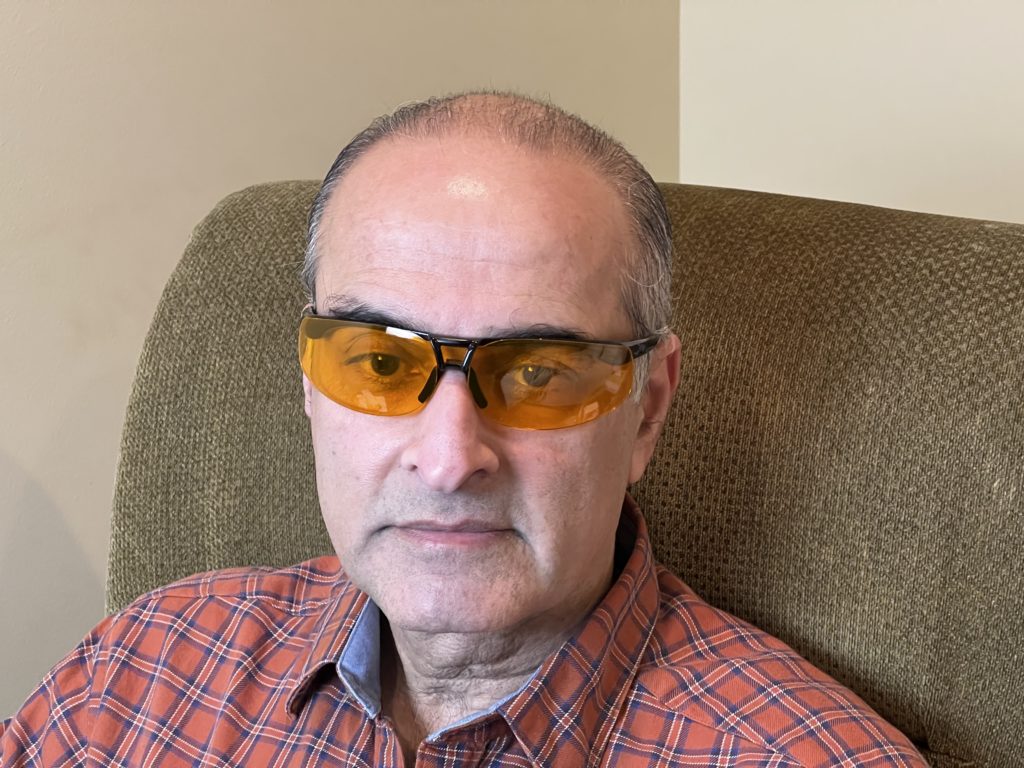
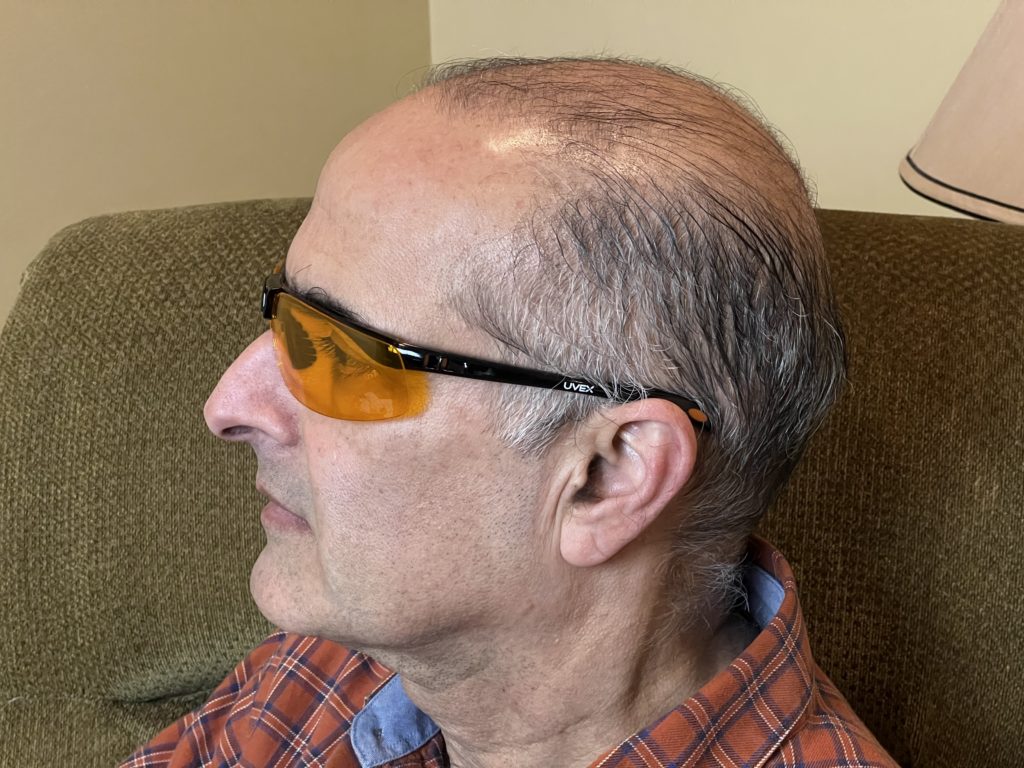
There is a program, f.lux, which can be installed on computers and other devices to automatically decrease blue light according to time of day. It is free for personal use. Available for Windows, Mac, Linux, iPhone/iPad, and Android. More info at https://justgetflux.com/.